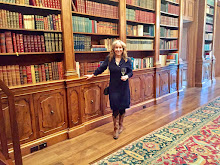 Like a lot of homeowners, I protest my taxes on a regular basis. Or at least I think about protesting them. When disputing my taxes, I've won a few times and I've lost as well. But I've always done it with the firm belief that I know what my property is worth more than they do. Perhaps you feel the same way?
Like a lot of homeowners, I protest my taxes on a regular basis. Or at least I think about protesting them. When disputing my taxes, I've won a few times and I've lost as well. But I've always done it with the firm belief that I know what my property is worth more than they do. Perhaps you feel the same way?
Well then, here are a few things you should know about the Dallas tax assessment process before starting down the tax protest route with the DCAD (Dallas County Appraisal District).
- The tax assessors office bases your taxes on the 'assessed value' of your property. Actual 'market value' is the estimated price a property will sell for in a reasonable amount of time when offered on the open market. Market value is influenced by the home's amenities, condition, location, homes that recently sold in the area, and by the current economy. According to DCAD, they use market value to determine assessed value. That may be the intention, but it doesn't always turn out that way.
- DCAD uses a mass appraisal system. Basically they reappraise large blocks of homes and raise or lower the values based on the overall trend in a large group of properties. Your value may go up just because you are part of a group where they raised the values. Assessed value is also determined by the exterior of your property from a street view. If there are interior factors that could help determine the true market value, you can take photos of those and point them out.
- The comparable sales and values are based on value as of January 1st that year. So if you are protesting your taxes in May 2014, you'll need to look all the way back to January 1st 2013.
- Your property includes 2 values - land and improvements. The land amount is typically the same in the neighborhood - but check out the value placed on your neighboring properties. If your lot is smaller, larger, next to a busy street, ... the valuation should be different. If lot sales in your neighborhood are different than the land value of your property, you can bring that up as well. Protesting land value is fairly cut and dry.
- Value of the improvements means your house, pool, garage, etc. This is where you can find a big difference in neighborhoods. Your home's age, condition and depreciation are factors in the value.
- The building class is a big determinate in your value as well. There are 26 basic home classes in Dallas. The higher the number, the more expensive your property is determined to be. Take a look at your property on the DCAD web site ( www.dallascad.org ) and see your building class. Your building class may be lower than DCAD says it is. They haven't been inside your home, so how do they know the value of the finishes or the condition of the interior?
- The tax assessor uses their own map to determine comparable home values. Unlike an independent property appraiser who compares like properties up to a mile away, the tax assessor's may only includes a few blocks. Keep within your neighborhood.

No comments:
Post a Comment